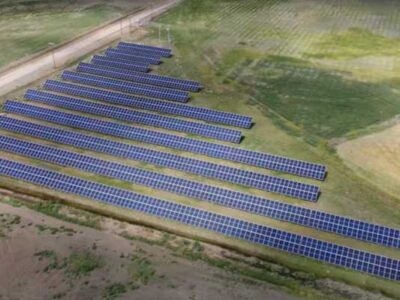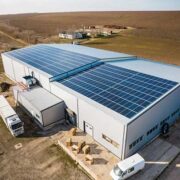The Energy Department’s National Renewable Energy Laboratory (NREL) was recently issued a patent for a novel method that rapidly characterizes specialized materials during the manufacturing process. This approach significantly improves on standard quality control techniques by allowing for complete monitoring of materials without interrupting workflow.
“This technique enables materials manufacturers to detect potential problems early without slowing or stopping the manufacturing process,” said Bhushan Sopori, an NREL materials performance scientist and inventor of the On-line Monitoring in Solar Cell and Fuel Cell Manufacturing technology.
Mike Ulsh, manufacturing R&D project lead for NREL, sees the commercial benefits of implementing this invention in a number of industries including manufacturing of fuel cell components, semiconductor wafers, glass, and coatings. “Introduction of this technique has the potential to help decrease the cost of producing materials in a variety of industries,” said Ulsh. “It would likely have the largest impact on reducing cost in high-throughput environments, such as roll-to-roll processing facilities, because it can characterize materials at a speed of tens of feet per minute.”
Characterization of materials using this method is accomplished via wide-angular illumination on the conveyor belt or roll-to-roll processing platform. Spectral imaging and reciprocal optics are then utilized to assess a number of material features including thickness, surface conditions, and uniformity. The novel method was demonstrated on a roll-to-roll processing pilot plant at NREL’s Energy Systems Integration Facility (ESIF).
NREL is the U.S. Department of Energy’s primary national laboratory for renewable energy and energy efficiency research and development. NREL is operated for the Energy Department by The Alliance for Sustainable Energy, LLC.
The SunShot Initiative is a collaborative national effort that aggressively drives innovation to make solar energy fully cost-competitive with traditional energy sources before the end of the decade. Through SunShot, DOE supports efforts by private companies, universities, and national laboratories to drive down the cost of solar electricity to $0.06 per kilowatt-hour.













Comments